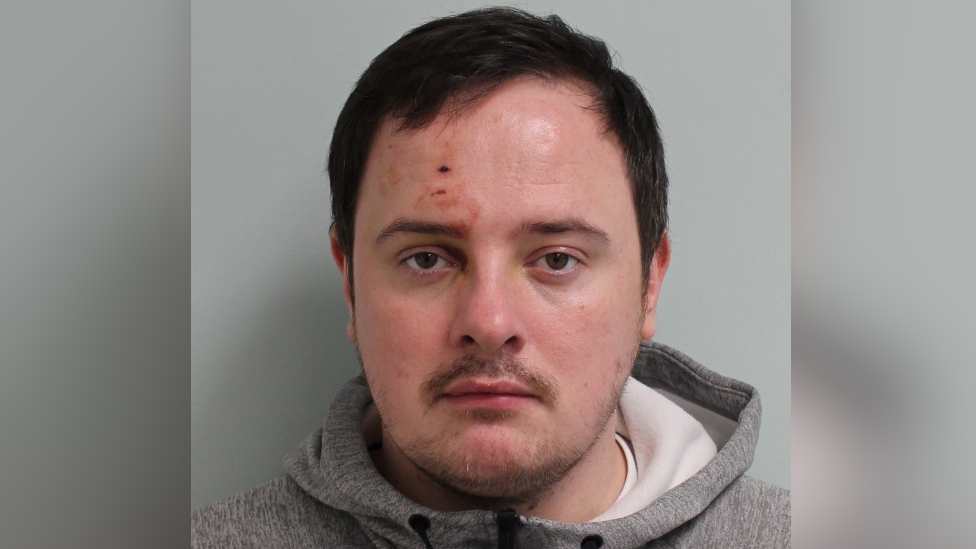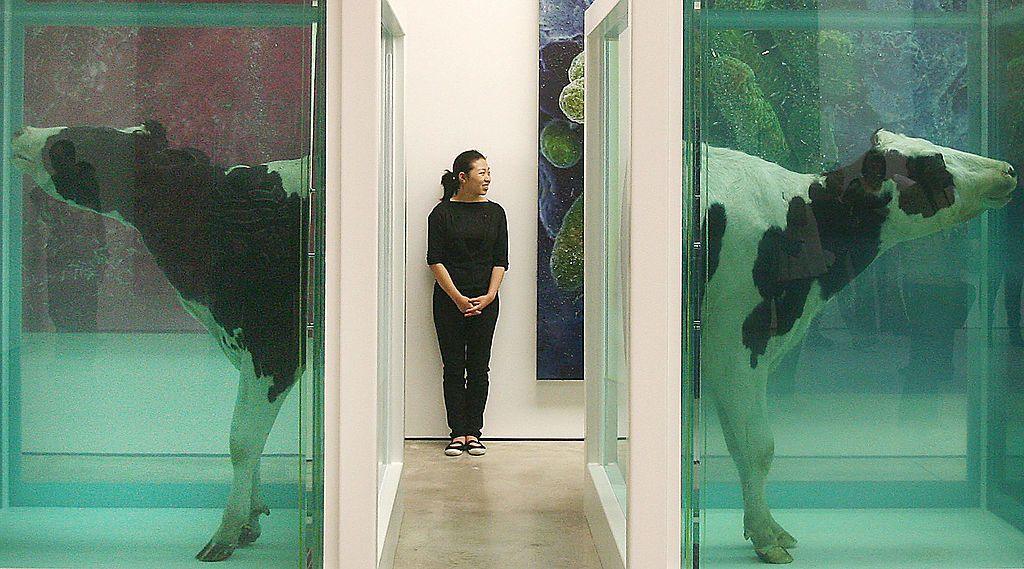Burglar with GPS tag jailed for Damien Hirst theft

Liam Middleton-Gomm was traced by his ankle tag
- Published
A man jailed for stealing from one of Damien Hirst's studios was caught by police who traced the movements of his GPS-enabled ankle tag, a court has heard.
Liam Middleton-Gomm, 36, broke into Thames Wharf Studios in west London on 30 June and stole about £5,130 of goods including electronic items, clothing and a pram.
The court heard the burglar attended the studio on two occasions that evening and went to his father's property in Fulham, west London, with some of the stolen goods.
Middleton-Gomm, who had 39 previous convictions including multiple house burglaries, was jailed for 32 months.

Damien Hirst is known for his Natural History series, which features dead animals preserved in formaldehyde tanks
Police charged the burglar after examining data from his GPS ankle tag and DNA at the scene, prosecutor Paul Andrews told Kingston Crown Court on Thursday.
It is understood that Middleton-Gomm stole multiple leather jackets that were being embellished, as well as trousers, embroidered shirts, and a Dior pram with silver skulls on the wheels.
Some of the property was sold on and has not been recovered.
His father, Leslie Gomm, 62, previously pleaded guilty to handling stolen goods for his son's benefit. He was given a one-year conditional discharge on Thursday.
He had been in custody for three-and-a-half months before his sentencing.

Hirst came to public attention in 1988 when he was a student at Goldsmiths, University of London, where he conceived and curated the group exhibition Freeze
Judge Martyn Barklem sentenced Middleton-Gomm to 32 months in prison and said: "You were actually wearing a GPS tag that was part of your licence conditions when you were carrying out these offences."
He added: "Your appalling previous record is of course a serious aggravating factor".
Middleton-Gomm, of no fixed abode, had pleaded guilty to two counts of burgling Hirst's riverside studio.
He was also sentenced for a number of other burglary-related offences.

Liam Middleton-Gomm smashed the window beside a fire exit and reached in to activate its shutter and enter the building, the court heard
Lord James Timpson, the minister for prisons, said in a statement released after the hearing: "Our GPS tags send a clear message to offenders: if you break the law, we'll know where you've been and justice will come for you.
"This case proves just how effective tags can be and we're increasing their use to punish offenders, prevent crime and make our streets safer."
More than 22,000 offenders and defendants were wearing an electronic tag as of September 2025 - a record high.
The government plans to tag thousands more criminals during the next three years as part of its reforms.
Listen to the best of BBC Radio London on Sounds and follow BBC London on Facebook, external, X, external and Instagram, external. Send your story ideas to hello.bbclondon@bbc.co.uk, external
- Published17 October
